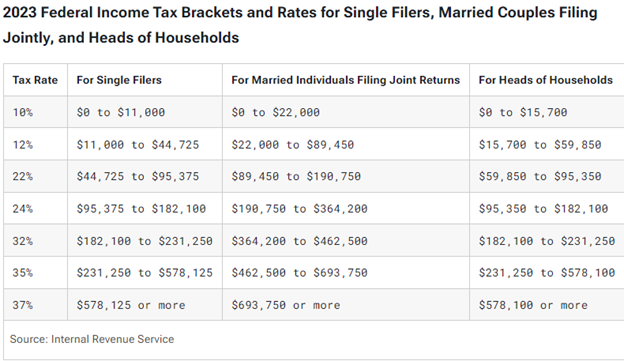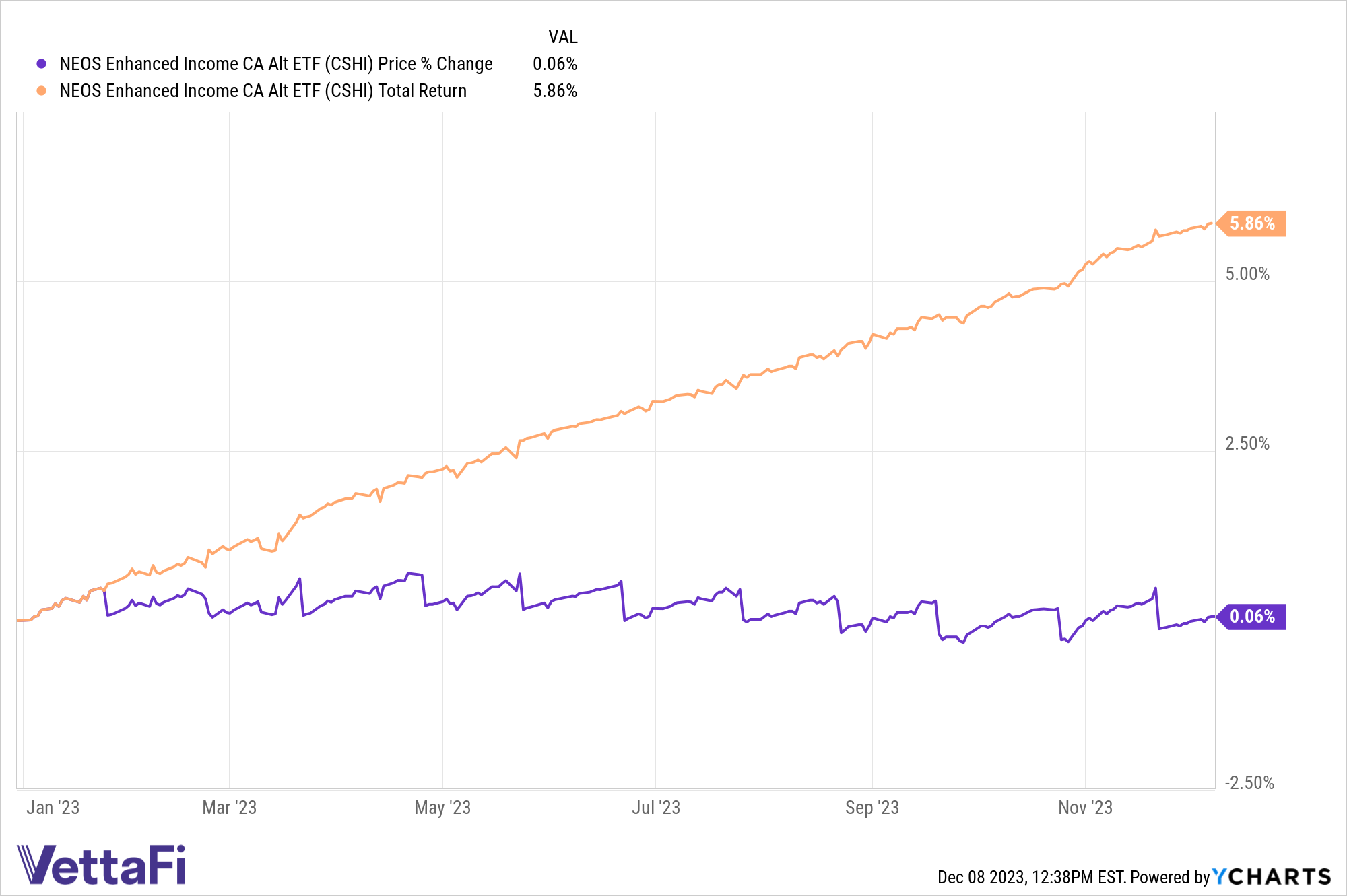Investors flooded into money market funds this year in an environment of persistent uncertainty. High money market mutual fund yields linked to Fed fund rates generated significant income this year, and a potentially significant tax bill next year for investors.
The 5% and higher yields on low-risk, short-term money market funds proved attractive, and lucrative for investors in 2023. Money market mutual funds invest in Treasury bills and similar short-term securities that benefited from rising interest rates.
These funds allow investors to put their cash allocations to work short-term while they wait out uncertainty and volatility. Most money market mutual funds pay out monthly dividends, which were sizable this year compared to previous years.
Income earned from money market fund interest is taxed as regular income, up to 37% depending on the investor’s tax bracket. While some local and state taxes offer breaks on income earned from U.S. Treasury bonds, federal income tax still applies.

Image source: Tax Foundation
CSHI Offers Similar Money Market Yields Without the Tax Bill
In a year of high yields and high interest income, January’s tax bill could prove a shock to investors. However, there are alternative tax-efficient income options within short-term Treasuries worth consideration. The NEOS Enhanced Income Cash Alternative ETF (CSHI) seeks to deliver 100-150 basis points above what 90-day Treasuries are yielding. It’s noteworthy for its tax efficiency and monthly-income-oriented strategy.
CSHI is an actively managed ETF that generates high monthly income and is an options-based fund. It is long on three-month Treasuries and sells out-of-the-money SPX Index put spreads. These roll weekly to account for market changes and volatility.

CSHI offers layers of tax efficiency. In addition to the potential tax benefits that U.S. Treasury investing provides, the fund also uses tax-efficient options. The put options that the fund uses are not ETF options but instead are S&P 500 index options. These options receive favorable tax treatment as Section 1256 Contracts under IRS rules. This means the options held at the end of the year are treated as if sold on the last market day of the year at fair market value.
Any capital gains or losses are taxed as 60% long-term and 40% short-term. Notably, this tax treatment applies regardless of how long the options were held. This can offer noteworthy tax advantages, and the fund’s managers also may engage in tax-loss harvesting opportunities throughout the year on the put options.
The fund also seeks to take advantage of tax-loss harvesting opportunities and the tax efficiency of index options. CSHI currently has a distribution yield of 6.15% and a 30-day SEC yield of 5.04% as of 11/30/2023.
The ETF has an expense ratio of 0.38%.
For more news, information, and analysis visit the Tax-Efficient Income Channel.

